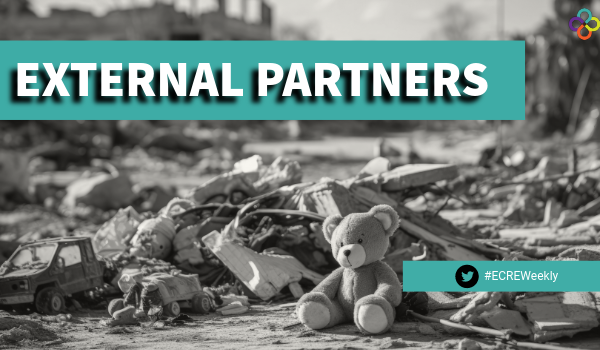- The Syrian Observatory for Human Rights has accused Türkiye of forcefully relocating Syrian refugees to areas under its control in Syria while a new report by the United Nations Refugee Agency (UNHCR) has revealed that many of them suffer gross human rights violations and abuses when they return to their home country.
- Italy’s Supreme Court of Cassation has ruled that handing over migrants to the Libyan Coast Guard is unlawful because Libya is not a ‘safe port’.
- Mauritania’s interior ministry has denied suggestions that the country will become an ‘alternative homeland’ for migrants following its recent deal with the EU.
Türkiye has been accused of forcefully relocating Syrian refugees to areas under its control in Syria. According to the Syrian Observatory for Human Rights (SOHR), between 16 and 18 February, Turkish authorities detained 300 Syrian refugees in what the organisation terms “torture centres” at the country’s border as part of a relocation plan. The SOHR described the centres at the border as “human slaughterhouses” where people were being subjected to physical and psychological torture, sometimes resulting in death. Separately, a new report by the United Nations Human Rights Office (OHCHR) has revealed that many Syrians who had fled the war face ‘gross human rights violations and abuses upon their return to Syria’. It adds that the violations and abuses have been perpetrated by ‘Government, de facto authorities and other armed groups across the country’ and that they include ‘arbitrary detention, torture and ill-treatment, sexual and gender-based violence, enforced disappearance and abduction’. In May 2022, Türkiye announced what it called the “resettlement” of one million Syrian refugees back to Syria, with reports of increased restrictions and forced deportations. Commenting on the report, UN High Commissioner for Human Rights Volker Türk said, “This report paints an alarming picture of the suffering of returnees, in particular women, amid the increasing number of deportations of Syrians from other countries. The situation of these returnees raises serious questions about the commitment of States to due process and non-refoulement.”
Italy’s Supreme Court has ruled that handing over migrants to the Libyan Coast Guard is unlawful because Libya is not considered a safe port. The decision upheld the conviction of the captain of the Italian private vessel Asso 28, which rescued 101 people in the central Mediterranean in July 2018 and then handed them over to the Libyan Coast Guard so that they could be returned to Libya. “Italy has never coordinated and handed over to Libya migrants rescued in operations coordinated or directly carried out by Italy,” said Interior Minister Matteo Piantedosi when commenting on the ruling. However, the rescue organisation SOS MEDITERRANEE posted on X: “OceanViking [their vessel] witnessed a series of erratic and aggressive behaviour of the Libyan Coast Guard. After this sequence, the Ocean Viking was detained on the basis of what the same Libyan Coast Guard reported to the Italian authorities about that day”. According to a recent report by the Belgian NGO 11.11.11, “Since 2017, Italy and the EU have financed and trained the Libyan coast guard and provided them with equipment such as ships. The EU coordinates the interceptions by the coast guard with drones and planes despite the fact that the UN has stated that Libya is not a safe return country.” The report also reveals that more than 300,000 pushbacks took place at Europe’s external borders in 2023.
Elsewhere, Mauritania has denied that it will be ‘hosting’ migrants following its recent agreement with the EU. “Mauritania will not be an alternative homeland for immigrants,” the Mauritanian Interior Ministry said in a statement, describing reports of plans to make Mauritania “an alternative homeland for settling, receiving or sheltering foreign migrants” as “completely baseless rumours”. This is despite the EU’s recent announcement that it had agreed to provide more than €210 million to the Government of Mauritania to curb irregular migration to Europe.
For further information:
- ECRE, EU External Partners: EU Signs Latest Migration Deal with Mauritania ― Frontex’s Co-operation with Libyan Coast Guard Despite Evidence of Abuse Exposed, February 2024
- ECRE, EU External Partners: Violence Against Migrants in Tunisia and Libya Continues ― EU to Determine Upcoming Funding Decision for UNRWA Amid “Strong Concern” Over the Dramatic Humanitarian Situation ― Europe Looking for New Partners to Externalise Asylum, February 2024

